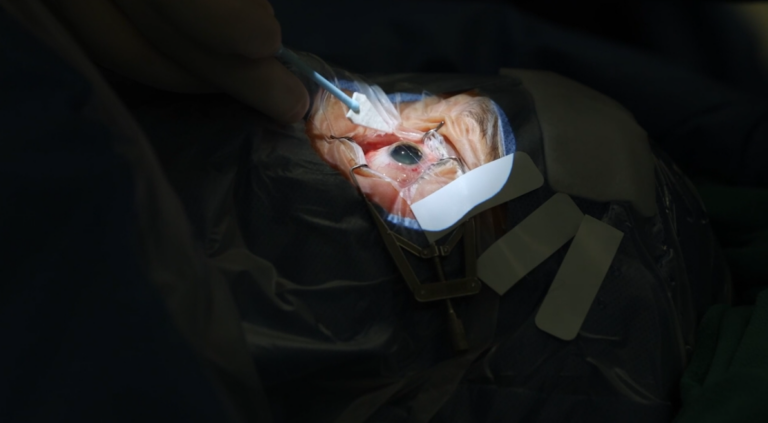Duke Eye Center pioneers new gene therapy for rare eye disease

DURHAM, N.C. (WTVD) — Duke Eye Center has become the first academic medical center in the country to implant a new cell-based gene therapy for a rare eye disease called MacTel.
This procedure offers hope to patients like Yvette Crawley, a retired X-ray technician from Apex, who was diagnosed with the condition over a decade ago.
MacTel slowly destroys the light-sensitive cells in the back of the eye, leading to a loss of central vision and making everyday tasks like reading and driving difficult. Until now, there was no treatment to slow the disease’s progression.
“This implant offers real hope for patients facing vision loss because of MacTel,” said Lejla Vajzovic, M.D., professor in the Department of Ophthalmology at Duke University School of Medicine. “We are really allowing our patients to live fuller, more independent lives by preserving their vision.”
Crawley, the first patient at Duke to receive the new gene therapy, had the implant-about the size of a grain of rice-placed inside her eye. The implant contains over 200,000 living cells that release proteins to protect the remaining photoreceptors, potentially preserving vision and independence.




